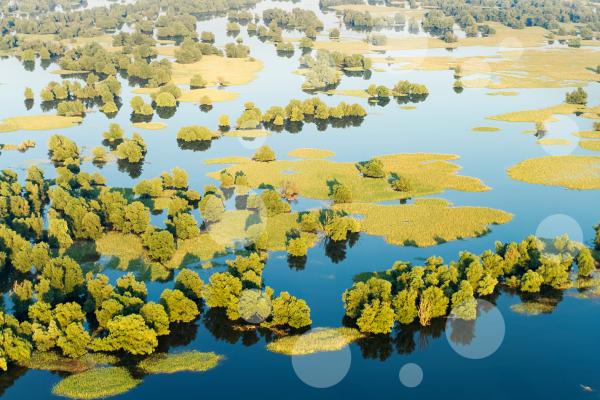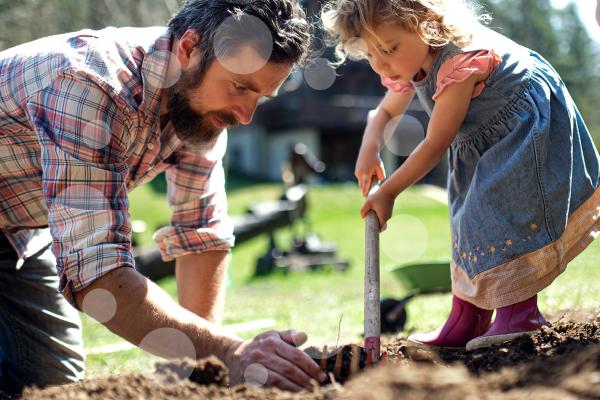Water plays a central role in the shared vision of the 2030 Agenda for Sustainable Development. Being a cross-cutting resource at the core of sustainable development, water is related to most Sustainable Development Goals (SDGs), although it is specifically targeted by SDG 6 which aims at ensuring safe drinking water and sanitation for all. Water governance is thus key towards peace and prosperity for people and the planet.
Rivers and seas are a common resource for the countries that share their basins. A key example in Europe is the Danube river which is 2 800 km long, passes through 10 countries and receives water from 19 countries. The JRC’s activities focus on assessing water availability in the European region, tackling the major sources of pollution and investigating the effects of EU policy and international conventions on water scarcity and quality.
At a global level, the JRC is highly committed to supporting developing countries (particularly in Africa) in finding their own sustainable solutions to water challenges by transferring technology and helping to build their capacity.
Danube
The JRC supports the implementation of the European Strategy for the Danube Region in close cooperation with the countries and national science academies of the region and the International Commission for the Protection of the Danube River (ICPDR). The JRC develops transboundary solutions for the restoration of water quality and the management of water-related risks.
More information
EFAS – European Flood Awareness System
The Mediterranean
Water is a natural resource that is at risk in the Mediterranean region due to increasing water demand for domestic and industrial use, expansion of irrigated areas and tourism activities. This resource is likely to come under further pressure as a result of climate change and rapidly growing populations, particularly in North Africa and the Middle East.
The JRC is part of an expert network in the Mediterranean region that is involved in assessing the present and future availability of water resources in the region, taking into account needs for adaptation to climate change and extreme events. The JRC also investigates the effects of changes in current and future water quality resulting from modifications in policies, including the impacts on transitional and coastal areas. Moreover, the JRC simulates and forecasts flash floods using novel high-resolution ensemble weather forecasts and rainfall radar data.
Sub-Saharan Africa
Most of the population in Sub-Saharan Africa does not have access to basic water supply or sanitation. Water resources have been increasingly under pressure because of changing availability patterns, growing population and changing societal habits. These stressors have reflected into increased water demands, particularly in urban settings, spatial mismatch between water availability and demand, which is further aggravated by few water infrastructures, and cross-sectoral and cross-national competition.
To address these issues, the JRC supports developing countries, mostly in sub-Saharan Africa, to find their own sustainable solutions to the water crisis.
JRC activities include assessing available water resources, floods, droughts and water scarcity, and the impact of different management and climate scenarios and strategies on agricultural production and the environment. The JRC also develops methodologies to monitor the variability of water balance components, and develops and manages a web-based information system – Aquaknow – to promote knowledge sharing and collaboration within the water sector community.
Human capacity development activities
The JRC fosters sustainable capacity development at institutional, higher education, technical, scientific and vocational level in the water sector to train skilled professionals to support the achievement of SDGs. In particular, the JRC collaborates with more than 40 African Centres of Excellence in Water (ACE-Water) in almost 30 partner countries with their governments and regional and continental institutions, such as transboundary river basin authorities, African Ministers Council on Water and African Union New Partnership for Africa’s Development, to name but a few.
Priorities and challenges in transboundary river basins in Africa
The JRC conducted a participated assessment of water-management issues within and across nine transboundary basins: Senegal and Niger river basins in Western Africa, Lake Victoria, Lake Chad and Lake Tanganika basins in Central Africa, and Okavango, Orange, Limpopo and Zambezi river basins in Southern Africa.
The JRC engaged with
- several African institutions working in the broad remit of natural resources to elicit local knowledge on the status of water resources in the basins
- the river basin authorities whose mandate is to manage the land and water resources and promote sustainable livelihood
- regional and local experts working in the European Union Delegations located in the riparian countries who contributed to the analysis with their viewpoint on the current hydropolitical dynamics
The outcome of this collaboration is an overview of the current transboundary issues concerning hydro-climatic change, food and energy security, human and environmental health, and best practices to promote cooperation among riparian countries towards common policy agendas.
The challenges can be broadly summarised as
- fostering food security by improving crop and pasture productivity and sustainable fishing
- tackling hydroclimatic change and interannual variability by anticipating change and increase system resilience
- improving water-budget estimates from local to regional scales by improving data collection and sharing
- managing water demand and supply to alleviate inter-sectoral competition
- addressing biological water-quality issues and health-related diseases
- managing hydropower production regardful of secondary effects caused by large dams
Best practices to promote cooperation are
- connect science and policy to provide sound knowledge for the right questions
- value local knowledge and exploit the complementarity of different perspectives
- consider multiple spatial scales and multi-level stakeholders to leave no one behind
- promote a culture which values trade-offs and handles complexity
- co-create data and knowledge to facilitate stakeholder dialogue from problem definition to intervention identification
Watch this video for more information
Research activities and projects on the Water-Energy-Food-Ecosystem Nexus
The JRC is conducting several research projects to understand the Water-Energy-Food-Ecosystem Nexus in Sub-Saharan Africa and how the nexus approach can contribute to the achievement of the SDGs. Read the Position paper on Water, Energy, Food and Ecosystem Nexus and Sustainable development Goals.
Recent examples of ongoing projects
1. Water-Energy-Food-Ecosystems Nexus in the Senegal River Basin - read the interactive story describing the project outcomes on the Africa Knowledge Platform.
2. Water and land management in the Lake Tanganyika and Kivu basins: watch a video on the completed and ongoing activities in the basins.
3. Management of small reservoirs in Burkina Faso: JRC developed a set of analytical and modelling tools to analyse the multi-purpose potential of the reservoirs in supporting local population needs, in terms of domestic, livestock, agriculture and electricity needs.


